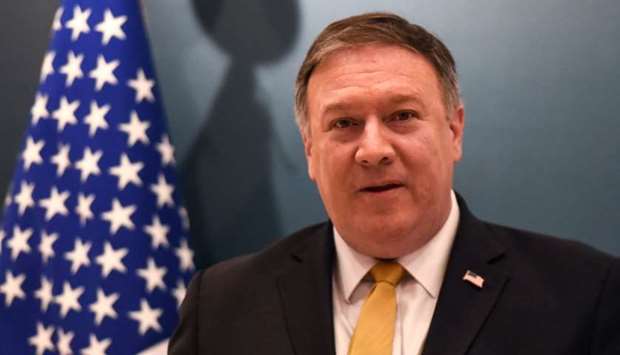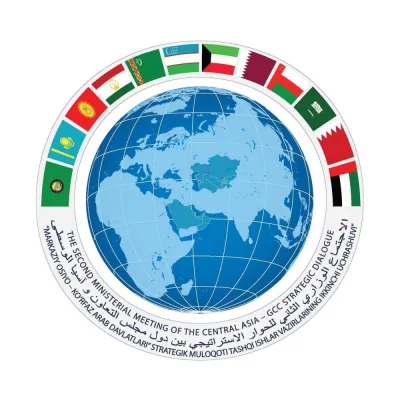New US Secretary of State Mike Pompeo stressed the need for unity among Gulf allies during a brief visit to Riyadh on Sunday.
In advance of Pompeo's visit, US officials told reporters the US secretary of state would urge Saudi Foreign Minister Adel al-Jubeir, Crown Prince Mohamed bin Salman and King Salman to resolve the Gulf crisis in a series of meetings on Saturday and Sunday.
In joint remarks with al-Jubeir, Pompeo said: "Gulf unity is necessary and we need to achieve it."
Addressing the rift between Qatar and its neighbours, Pompeo told reporters after leaving Riyadh: "We are hopeful that they will, in their own way, figure out how to remove the dispute between them."
Officials said Pompeo called for an end to the blockade because the US believes it has enabled Iran to exploit disunity in the Gulf by enhancing its influence in Yemen and Syria, The Associated Press news agency reported.
Saudi Arabia, along with the United Arab Emirates, Bahrain and Egypt, cut off travel and trade ties with Qatar last June, accusing it of supporting terrorism and Iran on the other side of the Gulf.
Doha has denied the accusations and has said its three fellow Gulf countries aim to curtail its sovereignty. For its part, Iran denies supporting terrorism or having sought to develop nuclear weapons.
The United States, which has military bases in both Qatar and some other countries in the region , is trying to mediate the Gulf crisis. Trump is also pushing for a resolution.
Pompeo met earlier with Saudi King Salman for about 15 minutes before heading directly to Israel, for talks with Prime Minister Benjamin Netanyahu.
Just hours after being confirmed as Trump's top diplomat, Pompeo set off on a whirlwind trip to Nato in Brussels and Middle East allies.
The trip comes as Trump considers whether or not to abandon a self-imposed May 12 deadline for the Iran nuclear deal he sees as deeply flawed. He has called on Gulf allies to contribute funding and troops to stabilise areas in Iraq and Syria where a US-led coalition has largely defeated Islamic State militants.
Asked about Saudi troops on the ground in Syria, Pompeo said: "We will sit down and talk about... how to best make sure that this is not America alone working on this, it's the Gulf states working alongside us."
Britain said on Sunday that it, France and Germany - the other signatories to the 2015 deal along with Russia, China and the European Union - had agreed the Iran accord was the best way of stopping Tehran from gaining nuclear weapons.
"(We) committed to continue working closely together and with the US on how to tackle the range of challenges that Iran poses - including those issues that a new deal might cover," a statement from British Prime Minister Theresa May's office said.
The 2015 agreement limited Iran's enrichment of uranium for nuclear fuel to help ensure it could not be turned to developing bomb material, and Tehran secured a removal of most international sanctions in return.
Iran has repeatedly said its ballistic missile programme has nothing to do with its nuclear work and is non-negotiable.
Trump sees three defects in the deal: a failure to address Iranian ballistic missiles; the terms under which UN inspectors can visit allegedly suspect Iranian nuclear sites; and "sunset" clauses under which key limits on the Iranian nuclear programme start to expire after 10 years.

US Secretary of State Mike Pompeo speaks during joint press briefing with the Saudi foreign minister at the Royal airport in Riyadh. AFP


